
 editor@adonis-abbey.com
editor@adonis-abbey.com ![]() UK: 0207 795 8187 / Nigeria:+234 705 807 8841
UK: 0207 795 8187 / Nigeria:+234 705 807 8841
Adonis-Abbey's Online Book Store Showing (page 1 of 18) - 176 books available
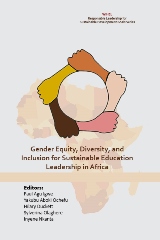
Gender, Equity, Diversity and Inclusion for Sustainable Education Leadership in Africa
Gender, Equity, Diversity and Inclusion for Sustainable Education Leadership in Africa examines the policies and practices of equity, equality, diversity, and inclusion (EEDI) as well as leadership, and management in the higher education systems in Africa. The book links these to several of the UN’s Sustainable Development Goals (SDGs) such as SDG5: (gende
Buy This Book View Book Details
Nigeria’s Foreign Policy Since 1999
Nigeria’s Foreign Policy Since 1999 discusses the dynamics of Nigeria’s foreign policy since the beginning of the country’s Fourth Republic in 1999. Major themes explored in the book include Afrocentrism and pan-Africanism in Nigeria’s foreign policy, the country’s role in such multilateral institutions as African Union, the Economic Co
Buy This Book View Book Details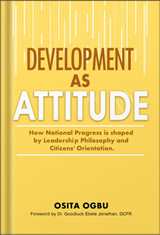
Development As Attitude
Why is Nigeria, indeed Africa, not developing? In Development As Attitude, Osita Ogbu, a professor of development economics and a former Chief Economic Adviser to the president of Nigeria argues that development is about evaluation of alternative values and choices. And leaders make these choices. Making the right choice and inspiring citizens to the difficult tasks o
Buy This Book View Book Details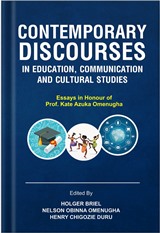
Contemporary Discourses in Education, Communication and Cultural Studies
Contemporary Discourses in Education, Communication and Cultural Studies is a collection of essays in honour of Professor Kate Azuka Omenugha, a distinguished educationist, academic and former Commissioner for Education, Anambra State. Divided into two parts and fourteen chapters, the volume explores and interrogates various themes – from Professor Omenugha&rsqu
Buy This Book View Book Details
LT. Gen Faruk Yahaya : Counter Terrorism & Counter Insurgency Theory Meets Practice
Lieutenant General Faruk Yahaya CFR NAM GSS psc(+) ndc (Chile) FCMH GSMH MIAD is the Chief of Army Staff Nigeria. He was appointed by President Muhammadu Buhari GCFR on the 27 May 2021. Faruk Yahaya was born 5 January 1966 in Sifawa, Bodinga Local Government Area of Sokoto State. He was commissioned into the Nigerian Army Corp of Infantry as Second Lieutenant on 27 De
Buy This Book View Book Details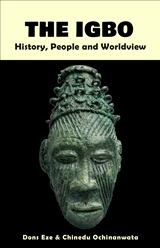
The Igbo: People, History and Worldview
The origin, history, worldview of the Igbo, one of the three major ethnic groups in Nigeria, is shrouded in mystery. Also, there is the controversy about who really are the Igbo, their institutions, political organisation, and relationships with their neighbours. The book not only unravels these mysteries, but also brings to focus contributions made by the Igbo, both
Buy This Book View Book Details
Nigeria’s Policy Response to COVID-19 Pandemic
Nigeria’s Policy Response to COVID-19 Pandemic provides an insightful discussion of how the Nigerian government and its people fought the battle against the coronavirus pandemic which claimed over 6 million deaths and over 468 million confirmed cases globally as of 20 March 2022. Like many other countries, Nigeria faced many challenges implementing its policy re
Buy This Book View Book Details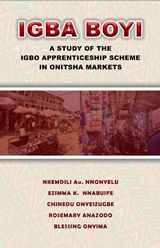
Igba Boyi: A Study of the Igbo Apprenticeship Scheme in Onitsha Markets
Igba Boyi: A Study of the Igbo Apprenticeship Scheme in Onitsha Markets is the product of an expansive, eighteen months’ study on the famed Igbo apprenticeship scheme, popularly known as Igba Boyi, using Onitsha markets (the hub of Igbo business and entrepreneurship) as the study area. The study adopted a concurrent mixed-method research design, inco
Buy This Book View Book Details
Microeconomics: Basic Principles and Applications
Microeconomics: Basic Principles and Applications is one of the uniquely organized books in Economics. Its emphasis is on the understanding of microeconomic theories and how these theories can be applied in addressing challenges of real world firms. This emphasis is reflected in the type of examples, illustrations and questions for discussion presented in each topic w
Buy This Book View Book Details
Collateral Damage: When Caregivers No Longer Care
In 1996 Greg Noack received his calling the hard way, suffering a traumatic brain injury from a violent assault. He went through a year of rehabilitation and recovery and in the process found his life's mission - to help others who experience brain injury. In Collateral Damage: When Caregivers No Longer Care, Greg shares the struggles he endured when he
Buy This Book View Book Details
© Adonis & Abbey Publishers Ltd. All Rights Reserved 2003 - 2024.


